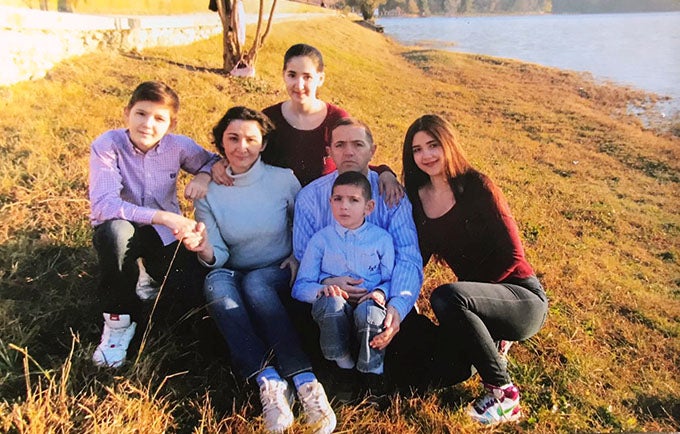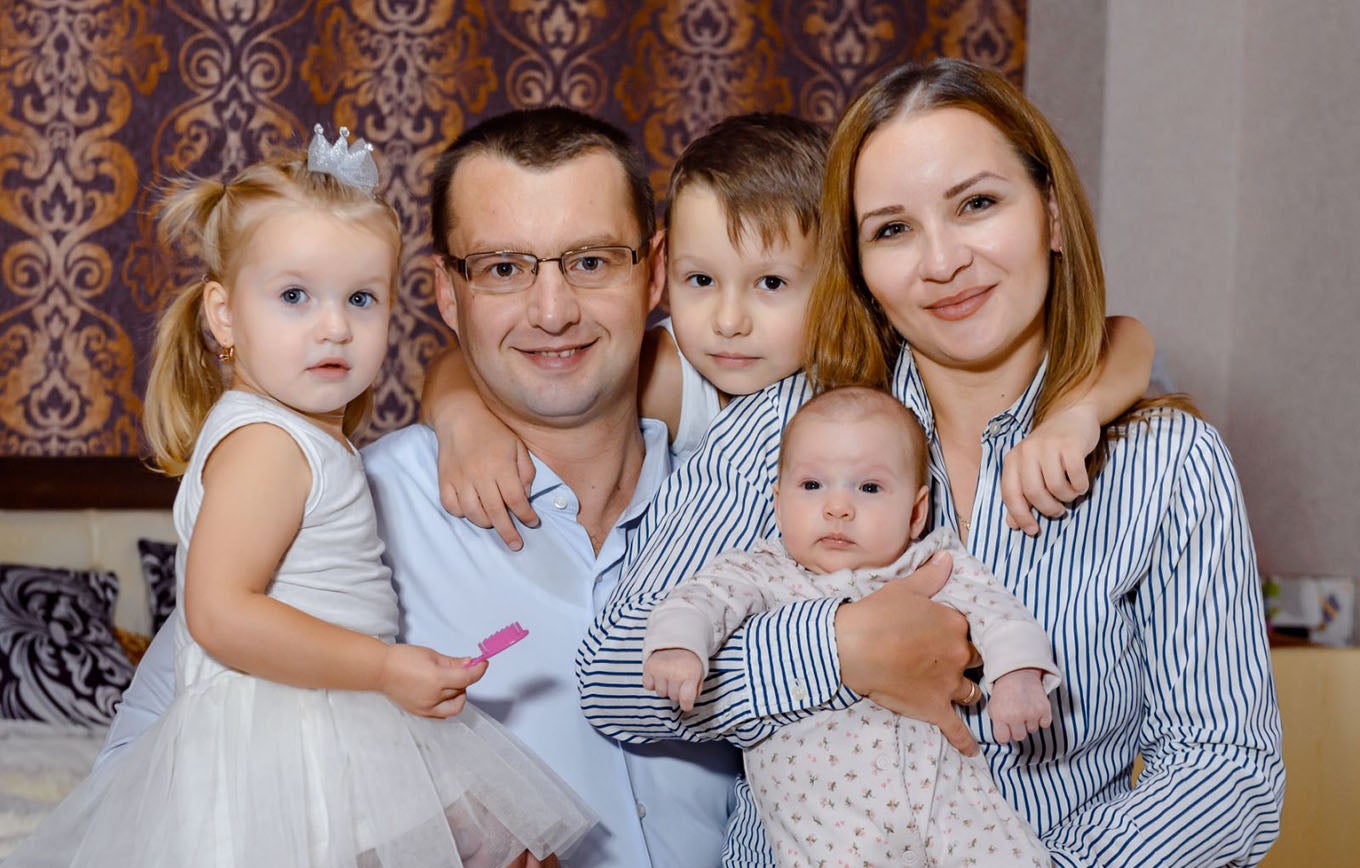ISTANBUL – When Blerim Bitri first heard about the opportunity to take paternity leave when his second child was born last year, he admits he was a little sceptical. “It seemed strange to me,” says Bitri, a pharmacist in Albania.
But after discussing it with his wife, he decided to apply for the leave. “I felt excited about watching my daughter grow up,” he says. “Fathers have an important role in the upbringing of their children and paternity leave is a good opportunity to be close to them.”
Noting that he has male friends and colleagues who have also decided to take paternity leave, Bitri adds, “I think the mentality is changing in Albania.”
Since 2019, UNFPA and its partners have been working to encourage that change in Albania, Kosovo and Moldova through the project Expanding Choices: Gender-Responsive Family Policies for the Private Sector in the Western Balkans and Moldova.
Women in Eastern Europe and Central Asia spend on average three hours more per day than men on unpaid care work, including childrearing, and many people in the region still believe that caretaking roles should fall mainly to women. But the lack of male involvement in childcare has many detrimental impacts. It limits families’ choices about how many children to have; upholds restrictive gender norms; hinders women’s career potential; and deprives fathers and children of closer relationships.
“Gender stereotypes often discourage men from engaging more in household and caregiving activities, be it with children, older people or family members with a disability,” says Dr. Nigina Abaszada, UNFPA Resident Representative to the Republic of Moldova and Country Director for Albania. “At the policy level, there are insufficient provisions on flexible or remote working arrangements and extended types of parental or caregiver leave, often leaving these matters at the discretion of the employers.”

Parental leave for fathers was not an option at all in Albania when Pajtim Shehu’s four children, who now range in age from 12 to 25, were born. “Obtaining this permission would have helped me to experience a lot of my children’s early years,” he says. “It would also have removed obstacles to my wife’s career. She often says that her maternity leave created challenges in her career development.”
Shehu, who has spent his own career working in state institutions, is currently self-employed as a facilitator for parental leave applications and says he is encouraged to see how many young fathers are expressing interest.
Albania allows fathers to apply for up to 17 weeks of paid paternity leave, compared to two weeks paid in Moldova. The legal limit is two days paid leave at birth and up to two weeks unpaid leave after a child is born or adopted in Kosovo, where fathers are not even allowed in the delivery room at public hospitals.
“Men in Kosovo are discriminated against compared to mothers from the moment they are about to become fathers as they are not allowed to be present during childbirth,” says Visare Mujko-Nimani, UNFPA Kosovo Head of Office. “Equal parental leave should be one of our main objectives as we work towards achieving gender equality.”

“I am sad that I could not be present during the birth of my children,” says Kadri Gashi, an NGO employee and father of three children in Kosovo who was unable to take paternity leave. When his wife had a caesarean delivery and difficulties breastfeeding, he says he found it even harder to be away from her and their children.
“It was difficult to be at work knowing that my wife was at home in need of both emotional support and physical assistance to care for a child and complete the household chores,” he says. “I would call and check on her several times a day, but hearing the baby’s cries over the phone made me even more emotional.”
“To see your baby’s first moves and hear them cry, play with them and take care of them is a joy that I cannot explain in words,” he says. “I have missed out on a lot of these moments due to not having any paternity leave.”
Through its Expanding Choices project, UNFPA is working to change national policies, private sector policies and social norms so that more men are both allowed and encouraged to take parental leave. It has already partnered with 26 Champion Companies in Albania, Kosovo and Moldova – representing more than 7,500 employees, over half of them women – that have joined UNFPA’s pilot initiative to create Family-Friendly Workplaces.
Nicolae Coada works as an engineer at one of those companies, Premier Energy Distribution in Moldova, and says he was encouraged to take his two weeks leave when his two children were born. “I got involved in all of the activities, changing diapers, getting up at night, doing housework,” he says. “It is beneficial to the children to have both parents involved together. Every moment with them is unique and it would be a shame to miss that.”

Legislation covering paternity leave was instituted relatively recently in Moldova, in 2016, and only 14 per cent of new fathers took it as of 2020. Premier Energy, the largest electricity provider in the country, is trying to help increase awareness of the law and its benefits by printing information about paternity leave on the back of all of its customer bills for the month of May. Moldova’s National Social Insurance Office is also developing an information campaign to promote paternity leave to new parents.
“I am very glad that I had this opportunity to get involved in my children’s lives; I can’t imagine not doing this,” says Alexandru Ghetu, an official at the Ministry of Health, Labour and Social Protection in Moldova who took leave when his second and third children were born. He currently works a shift that allows him to get home in time to pick up his daughter from preschool and take his older child for swimming lessons.
“You risk being seen as a guest in your own house by your children if you work too hard and spend little time with them,” he says. “I would tell other men that you don’t lose anything by taking paternity leave, you just gain quality time with your family.”


